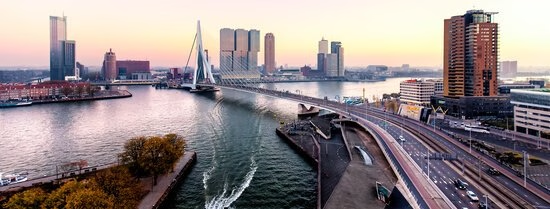Composed of three courses, the Energy Transition specialisation invites students to explore the multifaceted aspects of transitioning to sustainable energy systems. Amidst current challenges related to climate and global politics, the need for a rapid Energy Transition has never been more obvious. At the same time, it is essential to ensure that this transition happens fairly – both on a local and global level. The specialisation offers engaging lectures, practical simulations, case-based assignments, and visits to companies and communities. This ensures an immersive, transformative, entrepreneurial, and reflective learning experience for all students.

Energy Specialisation Course Overview

Course Descriptions
The energy industry is undergoing a significant transformation, driven by four key pillars known as 4D: Decarbonization, Decentralization, Digitalization, and Deregulation. Human engagement and social innovation are essential to this evolution, with concepts like energy commons acting as powerful catalysts that integrate these pillars. To address these needs, this course is structured around three parts: the fundamentals of the 4D transition, social innovation, and energy commons.
Given the complexity of the future energy landscape, a successful transition will require professionals who can take a holistic view of the entire energy ecosystem and lead multidisciplinary teams of engineers, economists, IT experts, business analysts, and data scientists. This course equips students with the necessary skills through lectures by leading researchers, guest talks from industry experts, and a site visit to the Green Village, an exemplary energy community. This blend of theory and practical experience prepares students to lead in the evolving energy industry.

The course critically analyzes energy transition from the interrelated perspectives of law and political economy. It pays particular attention to the potential of energy transition to reproduce existing socio-economic inequalities and injustices as well as creating new ones.
After discussing the role of (regulation of ) technology within the energy transition and implications of energy justice and the emergence and dominance of the fossil fuel economy, we will zoom-in on a variety of legal-political institutions that, on the one hand hamper the energy transition and, on the other, have the potential to facilitate it. In this context, the students will learn how under the current system of global law and governance, fossil fuel investors are bestowed exceptional powers while (local) communities resisting extractivist practices are marginalized. The course will engage with emerging policy proposals such as ‘unburnable fuels’ and reflect on the potential of social movements to expedite the transition away from fossil fuels. We will also look into what we call ‘institutions of hope’, that bear the potential of transformative change; in this context, we will discuss the vibrant field of climate change litigation and, more generally, instances of bottom-up legal mobilization.

One of the key elements in the energy transition is the spatial and physical transformation of the energy value chains and flows. Seaports are crucial elements in these energy value chains and flows, as they are the hubs trough which energy flows are distributed, they are places where energy is produced/generated and they are places where energy intensive industries and transportation movements take place. And this all is right now heavily fossil fuel based which need to undergo a transition towards zero-emission energy and circular value chains. Seaports are thus part of the problem ànd part of the solution in the energy transition. And therefore, a good understanding of their role and underlying mechanisms in the energy transition is highly valuable. The future (zero-emission) port will likely harness renewable energy, electrify equipment and vehicles, implement smart infrastructure, integrate green shipping and green logistics, and adopt circular economy practices. Moreover, new space and infrastructure is needed while facing increasing scarcity of space and money. And this all in a multistakeholder context that a port is. To face these challenges requires a good understanding of the drivers of the energy transition and the role a port playsin that. It requires a good understanding of the economics, strategies and governance of ports, and, it requires an ability to apply the relevant analytical concepts from economics, strategy, governance and transition management to come up with grounded solutions for this energy transition.

